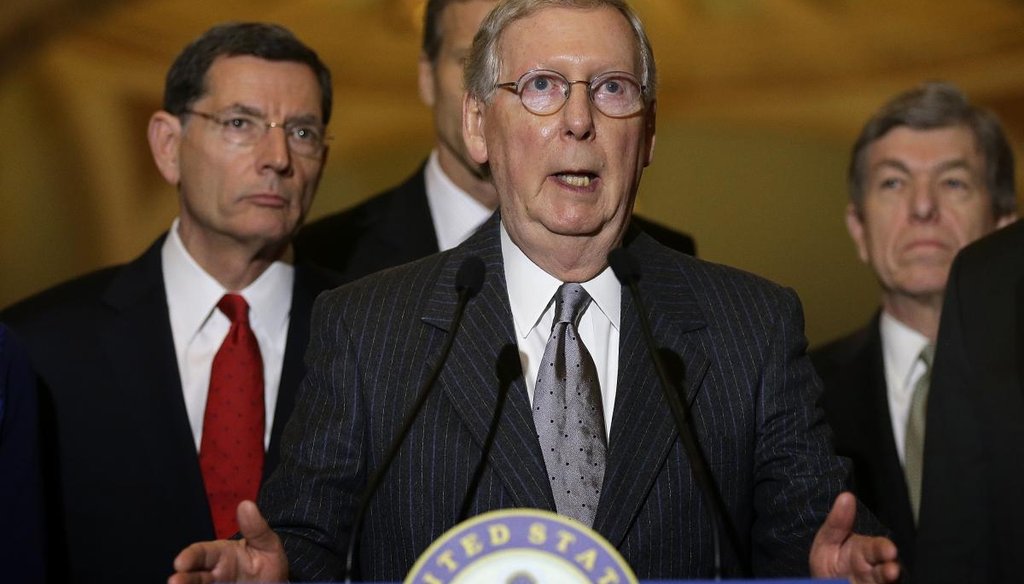Get PolitiFact in your inbox.

Senate Majority Leader Mitch McConnell, R-Ky., promised a new era of inclusion in the Senate. Has the GOP-led Senate really allowed more amendment votes than Harry Reid in all of 2014? (Getty)
Members of the conservative media took to Twitter last night criticizing our Mostly True rating of the claim that the Senate has already voted on more amendments in 2015 than it did in all of 2014.
On the numbers, the claim is accurate. In 2014, there were 15 roll call votes on amendments. As of Jan. 22, 2015, the date of the claim by Phil Kerpen, there were 16 roll call votes on amendments.
But experts cautioned that the claim falls more in the interesting factoid category than a sign of a different or more cooperative Senate leadership. As University of Kansas political science professor Burdett Loomis put it, "The overall idea isn’t trivial, but the exact number isn’t very significant, especially if McConnell, as expected, runs the Senate almost completely to the (Republicans’) advantage."
Conservatives, however, thought the rating should be True. Here’s a slice of the reaction:
LOLOLOL: "The simple answer on the number of votes is that Kerpen is correct." "MOSTLY true" Hacktastic, PolitiFraud! http://t.co/2XXk3iTW1T
— Phil Kerpen (@kerpen) February 3, 2015
PolitiFact now fact-checking tweets, poorly; Phil Kerpen's post accurate, but 'Mostly True' http://t.co/UrlOkn56rM
— Michelle Malkin (@michellemalkin) February 3, 2015
Politifact is fact-checking tweets and is being as niggling and false as it is with long articles. http://t.co/MRjDYy9Eaa
— John Podhoretz (@jpodhoretz) February 3, 2015
You're a f*cking joke, PolitiFact. http://t.co/xeujqlZp1E
— jimgeraghty (@jimgeraghty) February 3, 2015
While we won’t be changing our rating, the criticism is a good opportunity to remind readers of our definitions, which are what we use to judge each claim.
PolitiFact and PunditFact’s definitions of True and Mostly True say the statement is accurate. Here they are:
TRUE – The statement is accurate and there’s nothing significant missing.
MOSTLY TRUE – The statement is accurate but needs clarification or additional information.
So in this case, PunditFact felt Kerpen’s claim needed the clarification that the number isn’t, as Loomis said, "very significant."
It’s not all-too-unlike a claim President Barack Obama made that "Our unemployment rate is now lower than it was before the financial crisis." PolitiFact rated that claim Mostly True, noting that Obama is right when using the basic unemployment rate -- the most commonly cited figure -- but that other measures of the labor market are not quite so rosy.
Our Sources
See individual fact-check.




























